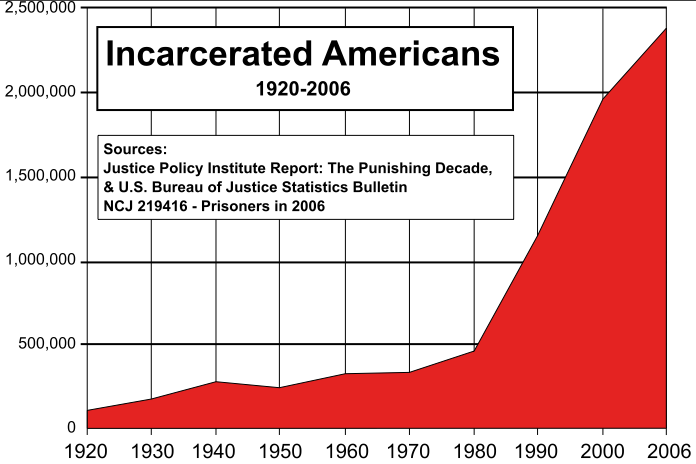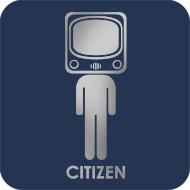Understanding the plight of others may be our only hope.
The denial of inequality as a core problem in society will only ensure it's ever growing existence. Even the privileged will ultimately benefit from a more enlightened society, hence, in giving up some privileges for wisdom.
Examining the dictionary definitions of some key words can help us better understand our own biases, rooted in the language itself. For instance, some dictionaries define underprivileged as being needy, and needy as lacking in ability, effort, and character. Also, in contrast, other parts of the definitions can be more constructive. I've tried to leave out most of the negative connotations, which I believe do more harm than good.
underprivileged |ˌəndərˈpriv(ə)lijd|
adjective
(of a person) not enjoying the same standard of living or rights as the majority of people in a society.
Thesaurus
underprivileged
adjective
deprived, disadvantaged, poor, destitute, in need, in straitened circumstances, impoverished, poverty-stricken, on the poverty line, lower-class; formal penurious. antonym wealthy.
privileged |ˈpriv(ə)lijd| and overprivileged |ˌōvərˈpriv(ə)lijd|adjective
having special or excessive rights, advantages, or immunities : in the nineteenth century, only a privileged few had the vote.
• [with infinitive ] having the rare opportunity to do something that brings particular pleasure : I felt I had been privileged to compete in such a race.
• (of information) legally protected from being made public : the intelligence reports are privileged.
privilege |ˈpriv(ə)lij| and overprivileged |ˌōvərˈpriv(ə)lij|noun
a special and excessive right, advantage (or over-advantage), or immunity granted or available only to a particular person or group of people : education is a right, not a privilege | he has been accustomed all his life to wealth and privilege.
• something regarded as a rare opportunity and bringing particular pleasure : I have the privilege of awarding you this scholarship.
• (also absolute privilege) (in a parliamentary context) the right to say or write something without the risk of incurring punishment or legal action for defamation.
• the right of a lawyer or official to refuse to divulge confidential information.
• chiefly historical a grant to an individual, corporation, or place of special rights or immunities, esp. in the form of a franchise or monopoly.
verb [ trans. ] formal
grant a privilege or privileges to : English inheritance law privileged the eldest son.
• (usu. be privileged from) exempt (someone) from a liability or obligation to which others are subject.
ORIGIN Middle English : via Old French from Latin privilegium ‘bill or law affecting an individual,’ from privus ‘private’ + lex, leg- ‘law.’
Tim Wise - The Pathology of Privilege
Tim Wise - The Pathology of Privilege
● [≠] inequAlItyinequality ≠ equality
equality |iˈkwälitē|
noun
the state of being equal, esp. in status, rights, and opportunities : an organization aiming to promote racial equality.
• Mathematics the condition of being equal in number or amount.
• Mathematics a symbolic expression of the fact that two quantities are equal; an equation.
ORIGIN late Middle English : via Old French from Latin aequalitas, from aequalis (see equal ).
Thesaurus
equality
noun
1 we promote equality for women fairness, equal rights, equal opportunities, equity, egalitarianism; impartiality, evenhandedness; justice.
2 equality between supply and demand parity, similarity, comparability, correspondence; likeness, resemblance; uniformity, evenness, balance, equilibrium, consistency, homogeneity, agreement, congruence, symmetry.
• • •
It's always disconcerting when seemingly intelligent, well-meaning people, who you care about, don't understand the basic social, racial, and ever widening income inequality issues within their own country, and sometimes even within their own life experiences and field of employment.
A recent experience inspired me to post some basic information about the prison industrial complex that I thought everyone already knew. Even if you are aware, it doesn't hurt to review, rethink, re•fact check, and reexamine these important issues once again.
• • • Race and Prison:As of June 30, 2007, the incarceration rate in state or federal prison or jail for men was 1,406 per 100,000 residents, for women 136 per 100,000 residents. The rate for white men was 773 per 100,000, for black men 4,618 per 100,000, for Hispanic men 1,747 per 100,000. The rate for white women was 95 per 100,000, for black women 348 per 100,000, and for Hispanic women 146 per 100,000.
Source: Sabol, William J., PhD, Couture, Heather, Bureau of Justice Statistics, Prison Inmates at Midyear 2007 (Washington, DC: US Department of Justice, June 2008), NCJ221944, p. 7, Table 10.http://www.drugwarfacts.org/cms/node/64 • • • The number of sentenced prisoners under state or federal jurisdiction per 100,000 U.S. residents, by gender, race, Hispanic origin.

Source: U.S. Department of Justice, Bureau of Justice Statistics
http://project.org/info.php?recordID=174 • • •
Rockefeller Drug Laws Information Sheet
Prepared by Aaron D. Wilson, Associate Director, PRDI
Brief History
In May of 1973, New York's Governor Nelson Rockefeller pushed through the state legislature a set of stringent anti-drug laws. Among the most severe in the nation, the purpose of these laws was and is to deter citizens from using or selling drugs and to punish and isolate from society those who were not deterred. "It was thought that rehabilitative efforts had failed; that the epidemic of drug abuse could be quelled only by the threat of inflexible, and therefore certain, exceptionally severe punishment."1
The new drug laws, which have since become known as the "Rockefeller Drug Laws" established mandatory prison sentences for the unlawful possession and sale of controlled substances keyed to the weight of the drug involved. Generally, the statutes require judges to impose a sentence of 15-years to life for anyone convicted of selling two ounces, or possessing four ounces of "narcotic drug" (typically cocaine or heroin).
In 1977 The Committee on New York Drug Law Evaluations, a partnership between the Association of the Bar of the City of New York and The Drug Abuse Council, Inc., issued a report2 that was highly critical of the Rockefeller laws. The Committee found that heroin use and heroin-related crime (the major drug concerns at the time) was as widespread in the middle of 1976 as prior to the enactment of the Rockefeller laws in 1973. Despite the expenditure of $76 million and the appointment of 49 additional judges to handle cases under the new law, it was described as a dismal failure.
That same year legislators removed marijuana from the list of substances covered by the Rockefeller Drug Laws, decriminalizing its use and simple possession under 7/8 oz. They were concerned over the large amount of criminal justice resources and prison space being used for marijuana offenders. They felt that criminal prosecution and incarceration were inappropriate penalties for mere possession and use of marijuana. 3
By 1979, in response to extensive criticism, the legislature had amended the laws to increase the amount of drugs needed to trigger the 15-year to life sentence for both sale and possession. In 1988, concern over "crack" cocaine led to a lowering of the weight threshold for cocaine possession to enable the arrest and prosecution of people possessing small amounts of the drug. The Rockefeller Drug Laws have remained essentially unchanged since then. 4
Consequences
Prison population
- Between 1980 and 1992, New York's prison population has tripled from about 20,000 to almost 62,000 (in 1973 the state's prison population was approximately 10,000). The State Assembly's Ways and Means Committee projects that the State prison population will grow to 71,300 by the end of the 1998-99 fiscal year, and to 73,100 by the end of 2001-02. Together with the Second Felony Offender Law, also passed in 1973, the Rockefeller Drug Laws have contributed significantly to the overall growth of the NYS prison population.5
- The percentage of the prison population incarcerated for drug offenses has been increasing since 1973, the year the Rockefeller Drug Laws were enacted, with particularly sharp increases during the 1980's. These mandatory minimum sentences for drug felonies have increased the percentage of convicted drug offenders who receive prison sentences. As a consequence, the NYS prison population has changed from one in which 9% were serving time for drug felonies (1980) to 32.2% (1997).6
- Since 1981, the State has added about 40,000 beds to its prison system, at an average construction cost of $100,000 each, for a total capital expense, not counting debt service, of approximately $4 billion. 7 Despite these increases, the NYS prison system remains severely overcrowded, forcing prison officials to double bunk or double cell approximately 9,000 inmates. 8
Financial costs
- Since the 1982-83 State fiscal year, the share of State General Fund spending going towards the funding of the NYS prison system more than doubled, from approximately 10% to fully 25% of the state's General Fund State Operations Budget.9
- As of December 31, 1997, there were 8,880 drug offenders in NYS prisons under the Rockefeller Drug Laws. According the Correctional Association of New York, it costs an estimated $265 million dollars to pay for these prisoners to be incarcerated. There were an additional 12,102 drug offenders in NYS prisons under the Second Felony Offender Law, costing an estimated $360 million per year. There were a total of 22,670 drug offenders in the NYS prison system, representing 33% of the total prison population. In 1980 drug offenses represented only 9% of prison commitments. 10
- Since 1989 the yearly budget for the State University of New York (SUNY) has dropped from a little more than $1.3 billion to around $800 million. In the same period, annual spending on prisons in New York has increased from a little less than $1 billion to $1.7 billion.11
Racial disparities
- In 1997, whites constituted 5.3 percent of the total population of drug felons currently in prison in New York; blacks and Latinos constituted 94.2 percent.12 Among whites committed to prison in 1994, 16% were convicted of a drug offense, among blacks 45% were committed for a drug offense, and among Latinos 59% were committed for a drug offense.13 As of 1996, Blacks and Latinos made up 23% of the state's general population, but constituted over 85% of the people indicted for drug felonies, and 85% of its overall prison population.14
Effects on women
- Women, especially black and Latina women, are particularly affected by the Rockefeller Drug Laws. Incarcerated women in New York are more likely than men to be drug offenders. In New York in 1990, 61.2% of all female prisoners were committed for a drug offense, compared to 32.2% of men. 15
- The rate of growth in new court commitments between January, 1987 and December, 1989 was approximately three times greater for women than for men, 98.9% for females versus 33.5% for men. In the same time period drug commitments for females rose 211%, and rose 82% for males. Over the same three year period, African-American women on average accounted for 46.1% of the new court commitment population, Latina women 36.3%, and whites 17.5%.16
http://prdi.org/rocklawfact.html• • • Industries that profit from the imprisonment of our citizens The list is almost endless but includes the following:
1. Contractors who built prisons along with the hundreds of sub-contractors that make specialized prison beds, toilets, window bars, toilets, locks etc.
2. Food services that unload hundreds of tons of inferior food products on our prison population.
3. Clothing manufacturers who manufacture not only guard uniforms but prison uniforms as well, plus the ridiculous clothing that's given to convicts upon release.
4. Other profiteers include gun manufacturers, those who make the chemicals used to kill our citizens, casket makers for the dead ones, the medical profession tasked with keeping the condemned alive until they can be put to death, and even the P.R. operatives who lie to the press about the system and its abuses.
This is just the tip of the iceberg that is the system that preys on our citizens rather than attempts to educate and rehabilitate them.
Nearly every family in America has been affected in some negative way by the PRISON INDUSTRIAL COMPLEX.
 http://uresist.com/info/industry/prison
http://uresist.com/info/industry/prisonLabels: corporate military, equality, inequality, inequality ≠ equality, military, Military Thug Squad, overprivileged, prision, PRISON INDUSTRIAL COMPLEX, privilege, race, racism, underprivileged, ≠
















